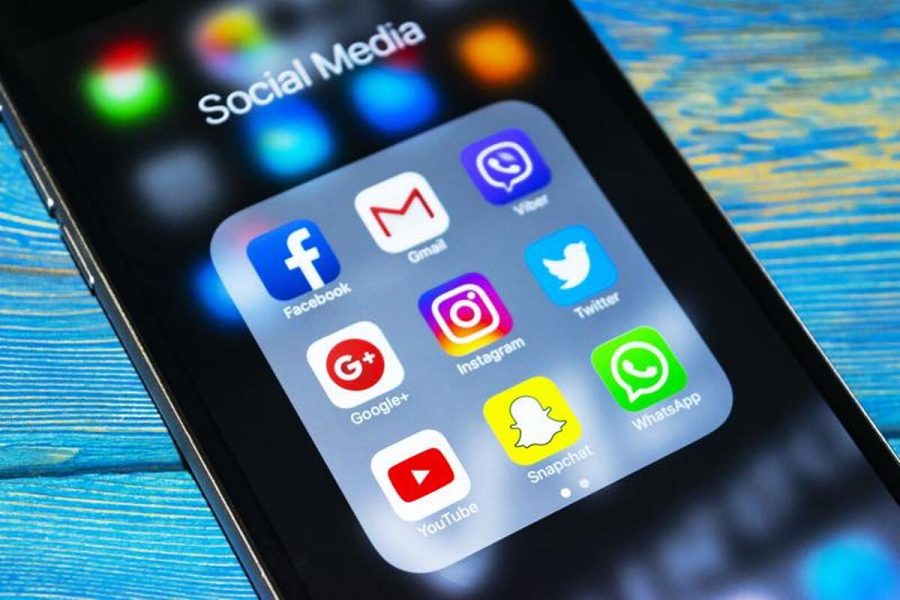Section 230 and social media censorship
Various social media apps widely used by everyday Americans. Social media has become a way of life throughout the 21st century.
President Donald Trump made an announcement on Dec. 1 to veto an annual defense bill unless Section 230 is repealed.
Section 230 is a piece of internet legislation that protects companies from being sued for what their users post on their platforms.
This legislation has been essential to the growth of the internet over the course of the past two decades since it was introduced. Without it, we couldn’t have Youtube, Twitter, Yelp, Facebook and any other platforms which allow users to post content since the companies can be held accountable for countless lawsuits.
For example, if person A posts a defamatory piece about person B on Youtube, person B can sue Google for defamation for allowing that content to get posted.
With how much content is posted every minute, it’s impossible to vet everything that is put on each platform.
The section also provides protection to companies that want to remove content they deem offensive from their platform. This last part of Section 230 is the reason why Trump wants it repealed.
Since June 2019, Twitter has begun flagging tweets from government officials that break their rules.
This means Trump’s tweets tend to be flagged often for abusive behavior and, more recently, misinformation about the results of the election.
Trump has made multiple claims that Twitter and Facebook are trying to censor conservative viewpoints, but there’s no evidence to support this claim. The content being flagged is clearly misinformation, bullying, hate speech or some other violation of the website’s rules.
The real issue with social media isn’t censorship, but quite the opposite. It’s the difficulty of moderating such a large platform that’s the biggest issue.
A fake news article, such as one about election fraud, will always spread before it gets flagged and taken down. And many of the people who read that article would rather believe in social media censorship rather than admit they were wrong.
Then they read another news article, that one gets flagged as fake, and the narrative continues to get spun.
This is exactly how we get such wild conspiracy theories as QAnon and Pizzagate.
I do believe Section 230 needs to be adjusted now that the scope of social media is far larger than was originally envisioned when the legislation was put into place.
I’m not talking about the kinds of changes that Sens. Roger Wicker (R-MI), Lindsey Graham (R-SC), and Marsha Blackburn (R-TN) tried to introduce on September 8, which would hold tech companies liable for removing content that isn’t obscene or illegal.
In fact, websites should be held more accountable for moderating what is posted and make a greater effort in preventing fake news and conspiracy theories from thriving on their platforms.
We need to be aware of the dangers of misinformation and find a way to moderate it fairly, otherwise, our society won’t be able to distinguish fact from fiction, if we aren’t at that point already.

